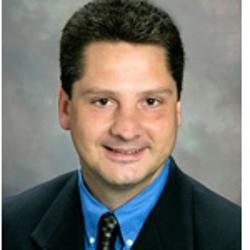The Environmental Science, Policy and Engineering Winter Seminar Series continues Thursday, Feb. 2 with a talk by Victor Abate, vice president for Renewable Energy at General Electric in Schenectady.
Abate’s talk, “The Future of Alternative Energy,” begins at 7 p.m. in the Nott Memorial.
The theme of this year’s interdisciplinary series is “New York’s Energy Future.” The series is sponsored by the Environmental Science, Policy and Engineering (ESPE) program, with support from the Mellon Foundation.
Since November 2005, Abate has headed one of the leading global providers of wind and solar energy products and support services. With manufacturing and assembly facilities in the U.S, Germany, Spain, China and Canada, the company’s current renewable product portfolio includes wind turbines with rated capacities ranging from 1.5 to 3.6 megawatts, and solar electric power systems for on- and off-grid applications.
Prior to his current role, Abate was vice president of technology for GE Energy's power-generation segment, which includes gas, steam, wind, solar and hydro-turbine generators, gasification technologies and integrated gasification combined cycle.
The 15th annual Speaker Series kicked off Jan. 18 with a talk by William Schlesinger, a prominent carbon biogeochemist and president of the Cary Institute of Ecosystem Studies in Millbrook, N.Y.
Future speakers in the series (all at the Nott, 7 p.m.):
Wednesday, Feb. 15: Frank Murray, president and CEO of New York State Energy Research and Development Authority (NYSERDA)
Thursday, Feb. 23: Andrew Revkin, an environmental journalist for the New York Times and author of the blog, Dot Earth, where he reports on natural resources, the environment, climate change and sustainability.
Wednesday, Feb. 29: Kathleen Segerson, professor of economics at the University of Connecticut and a member of the Environmental Protection Agency’s Science Advisory Board. Segerson’s research focuses on the incentive effects of alternative environmental policy instruments, including applications in groundwater contamination, hazardous waste management, workplace accidents, land use regulation, climate change and nonpoint pollution from agriculture.
